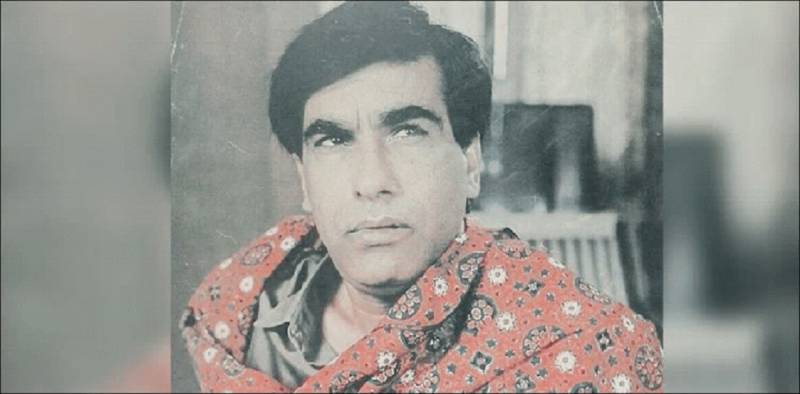
Sindh has made significant contributions to Pakistan's entertainment industry. One of the biggest examples of this is the talented Mansoor Baloch. In what is largely considered to have been the golden era for the Pakistani television and film industries, Sikander, also known as Mansoor Baloch, ruled the screens.
Hailing from a small village in Nawabshah district, he emerged as one of the most versatile actors, gaining tremendous fame. The distinguished actor played a vital part in promoting Sindhi television plays throughout the country, playing some very memorable roles.
The veteran actor was born in 1944, in Buchri village of Shaheed Benazirabad district (formerly known as Nawabshah), to Raees Abdullah Khan Lund, who was the chieftain of his tribe.
Being the scion of a typical feudal lord, making a mark in the field of performing arts was always going to be a hard nut to crack for Mansoor Baloch.
However, Dilip Kumar's 1951 movie "Tarana" fueled his ambitions. He travelled from his native Nawabshah to the southern port city of Karachi to try his luck in the entertainment industry. He started tarrying outside Pakistan Television's (PTV) Karachi centre.
Mansoor Baloch received the PTV's Best Actor award for his role as the young courageous hero Hashim Khan in "Deewaren"
The young man's persistence eventually earned him an opportunity to perform the role of a police officer in a play on PTV written by the legendary playwright Mirza Qaleech Baig in 1974. He played the role of Hashim Khan in the television play "Deewaren", followed by his performance as Maheran Khan in the drama serial "Jungle", which bolstered his stock as an actor and garnered fans across Pakistan as well as from neighbouring countries. He received the Best Actor award from PTV for his role as the young courageous hero in "Deewaren", while he played a typically cruel feudal lord of Sindh in "Jungle".
After the death of his father, Mansoor's intrinsic tribal duties finally caught up with him. He succeeded his father as the chieftain of the Lund-Baloch tribe. But this additional responsibility never affected his work, and his fame kept thriving.
Famous Sindhi film director Saeed Ahmed introduced him to Sindhi movies and utilised his skills there. He appeared in blockbuster Sindhi movies such as "Tuhinju Galiyon Sajan", "Dushman", "Peru Chandio", and "Shaheed". The government of Pakistan bestowed upon him the President's Pride of Performance Award in 1984.
This body of work only further inflated Baloch's ambitions, and he moved to Lahore, the hub of the Pakistani film industry at the time, where he got the chance to work in movies like "Haseeno Ki Barat", "Kalay Chor", "Dillagi", and "Lady Commando".
All in all, he worked in over a dozen Urdu, Punjabi, and Pashto movies besides working in several television plays during his 20-year acting career.
According to his son, Gul Mansoor Baloch, the late actor was dissatisfied with the attitude of film directors during the last days of his life.
Mansoor Baloch received the President's Pride of Performance Award in 1984 in recognition of services to the performing arts
He returned to Nawabshah after he developed differences with certain bigwigs in the film industry. They eventually came to Nawabshah to cajole him, after which he returned to Lahore. But just eight days after he returned to Lahore, he was found dead under mysterious circumstances at his residence on May 3, 1994.
May 3, 2024 marked the 30th death anniversary of the seasoned actor, but to date, the cause of his death remains a mystery. Though he may be gone, his legacy lives on, and his remarkable body of work will continue to be cherished and remembered by fans of the performing arts for years to come.

